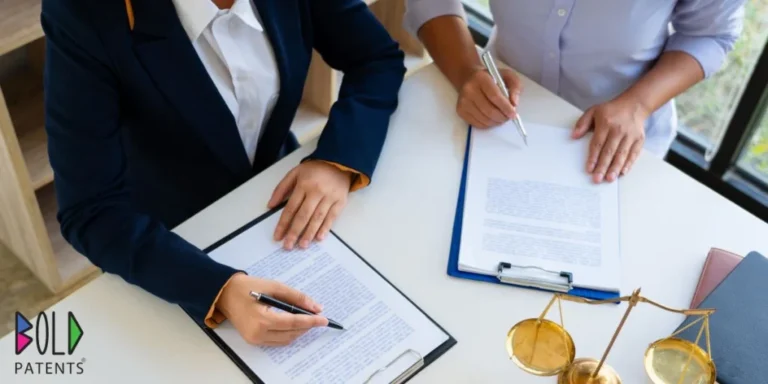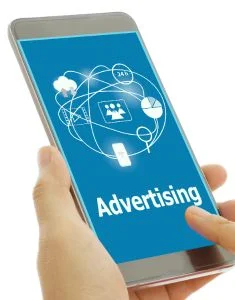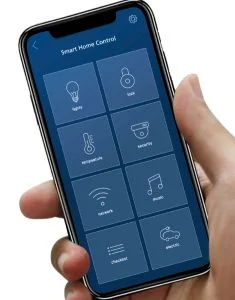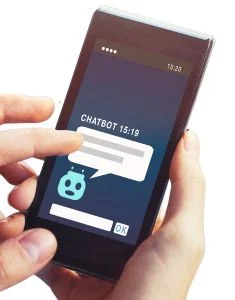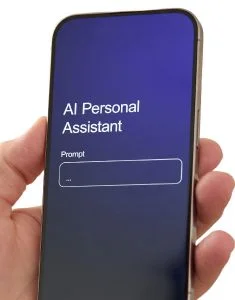AI Patent Lawyer
The innovation and continued advancement of new technologies help propel all industries forward. Protecting those inventions is crucial for companies and independent inventors to maintain their competitive edge. As AI continues to evolve, so do questions about how those involved in the AI generative process can protect their creations. An AI patent attorney can help you review what IP protections may apply to an AI creation.
AI is a complex area of IP. In the rapidly evolving landscape of technology, artificial intelligence (AI) has emerged as a game-changer, revolutionizing industries and transforming the way we live and work. As AI continues to advance, the need for effective legal frameworks becomes increasingly crucial, particularly in the realm of patent law.
Patents play a pivotal role in protecting and incentivizing innovation, and as AI technology blurs traditional boundaries, understanding the intricacies of patent law in relation to AI inventions is paramount. The intersection of patent law and AI opens up some unique challenges and opportunities that are just beginning to be explored. Entrepreneurs and visionaries can benefit from the help of an experienced patent attorney when navigating the patent process.

Finding the Right Patent Attorney at Bold Patents Law Firm
The AI generative industry is incredibly competitive, and a quality patent can help you protect your innovative creation by providing you with certain rights. The process of applying for and securing a patent is complex enough for inventions, and the inclusion of AI only furthers the uncertainty of patentability. You need a qualified and dedicated attorney who can review your invention and the impact of AI on its creation.
At Bold Patents, we can help you determine if you can patent an AI creation or an AI software you developed. We can also determine if other types of IP protection can provide you with the necessary rights to your creation, such as trademarks, trade secrets, and copyright. These other forms of IP protection may better protect your immediate and long-term business goals for your invention.
The newness of this technology means that ongoing litigation and other legal decisions can change the patentability of AI quickly. Our team stays on top of the changes to these laws and how they affect those who create AI software and generate AI creations. We are proud to help innovative creators on their journey to protect their inventions and profit from what they have created.
Bold Patents can help you through each step of the patent process, including conducting a patent search and an art search, documenting your invention, gathering additional documentation for your application, and following the application through the U.S. Patent and Trademark Office (USPTO). Our team believes in supporting the spirit of progress, but we also maintain awareness of the legal and ethical implications of different uses of AI in many industries.
Ownership Issues with Artificial Intelligence Inventions
One significant challenge that comes with the advent of AI is determining inventorship and ownership of AI-generated inventions. Unlike traditional inventions, AI systems can autonomously generate inventive outputs, blurring the line between human inventors and machine creators. This raises critical questions about who should be recognized as the inventor and who holds the rights to such inventions.
Traditionally, the owner of a patent is the individual or entity who invents the technology. However, with AI, the line between human inventors and machine creators blurs, leading to legal uncertainties. Determining ownership becomes particularly complex when AI is utilized in research and development processes, and multiple entities contribute to the creation of an AI invention. Addressing this issue requires careful consideration of the roles and contributions of human inventors, AI systems, and the organizations that develop them.
In addition to ownership, inventorship in AI inventions also presents a challenge. Patent laws typically require that inventors be natural persons who make a creative and intellectual contribution to the invention. However, AI-generated inventions complicate this concept. While AI systems can autonomously generate innovative outputs, they lack legal personhood.
This raises questions about whether AI systems can be considered inventors and, if not, who should be recognized as the inventors of AI-generated inventions. A Federal Circuit Court has recently ruled that an inventor must be human for the purposes of patent law, but it remains to be seen whether Congress and the patent office will implement changes to the legal framework given the novelty of the issues involved.
Patentability of AI Inventions
The patentability of AI inventions is a complex and developing area within patent law. To qualify for a patent, an AI invention must meet the general patentability criteria, which include novelty, non-obviousness, and industrial applicability. However, applying these criteria to AI inventions can be challenging.
- Novelty and Innovation. One key consideration is the determination of novelty. AI systems can process massive amounts of data and generate insights or solutions that may have been previously unknown. However, determining whether an AI invention is truly novel requires a comprehensive analysis of the prior art and an understanding of how the AI technology differs from existing solutions.
- Non-Obviousness and Non-Derivativeness. In addition, the non-obviousness requirement poses a challenge, as the rapid advancements in AI raise questions about whether an AI invention involves an inventive step beyond what would have been obvious to a person skilled in the art.
- Human Involvement. Beyond novelty and non-obviousness, the role of human involvement and creativity in AI inventions is another crucial factor in determining patentability. While AI systems can autonomously generate outputs, the question of whether they should be considered the sole inventors or if human creators who developed or trained the AI should be recognized as co-inventors is another matter of ongoing debate. Patent offices and courts are grappling with the issue of defining inventorship in the context of AI, as it has significant implications for the rights and ownership of AI-generated inventions.
Disclosure Requirements
Another challenge with respect to AI and patents involves disclosure requirements. In patent law, disclosure plays a vital role in providing sufficient information about an invention to enable others to understand, replicate, and build upon it. However, AI technologies often operate as “black boxes,” making it difficult to fully understand the inner workings of the system and disclose the necessary information for patent applications. This lack of transparency raises concerns about the sufficiency of disclosure, as well as the potential for hindering innovation by limiting access to valuable knowledge.
The black box problem becomes particularly pronounced when considering the dynamic nature of AI, where machine learning algorithms continuously evolve and adapt based on new data. This creates a dilemma for patent applicants as they strive to strike a balance between disclosing enough information to satisfy the disclosure requirements, while also protecting trade secrets and proprietary algorithms.
Patent Examinations and Prior Art Challenges
Patent examination and prior art challenges present significant considerations in the context of AI inventions. Patent offices face the task of evaluating the patentability of AI-related innovations, which requires specialized expertise and an understanding of the intricacies of AI technology. One of the main challenges lies in conducting effective prior art searches.
The rapidly evolving nature of AI makes it difficult to keep up with the latest developments and identify existing solutions that may impact the novelty and non-obviousness of AI inventions. Traditional patent search methods may prove inadequate in capturing the breadth and depth of AI-related prior art, necessitating the exploration of innovative techniques and tools to enhance the effectiveness of prior art searches.
Moreover, assessing the patentability of AI inventions involves determining whether an AI invention involves an inventive step beyond what would have been obvious to a person skilled in the art. This can be difficult due to the intricate algorithms and data processing involved. The examination process needs to adapt to effectively evaluate the inventive step of AI inventions, ensuring that the patent system appropriately incentivizes and protects truly innovative advancements in AI technology.
This may require the collaboration of patent examiners, industry experts, and AI specialists to establish robust guidelines for patent examination in the rapidly evolving field of AI.
How Can an AI Patent Attorney Help Me Protect an AI Invention?
There are numerous complex steps in the patenting process, from conducting a patent search to determining the type of patent you want to apply for. An AI patent attorney has navigated this process many times and can help you be more successful. A patent attorney can help with many of the following areas of securing a patent:
- Evaluating Patentability. An invention, whether it is AI software, an AI creation, or something else, must meet the general definition of a patentable invention and the definition of one type of patent. There are utility, design, and plant patents, and each has its own specifications. An attorney can quickly evaluate whether your invention meets the criteria of a patent and provide advice on other types of IP law. In order to be patentable, the invention must also not infringe on any other patents. Conducting a patent search is a part of the USPTO process. You should also conduct a more general art search, as you cannot patent something that has already been created. An attorney makes this process much easier.
- Documenting Your Invention. Part of the application process includes a description of the invention, how it is made, and how it is used. It also includes other documentation, such as drawings or specifications of the invention. Proper documentation of AI inventions is easier with the resources of a patent attorney.
- Preparing Your Application. Your attorney can help you present your invention in the most positive light, gathering the right documentation and structuring it to give it the greatest chance of success.
- Avoiding Errors. Mistakes and improper information in the application can lead to delays in the patent process. You must respond quickly to requests for additional information, or your application may be discarded. Errors may even result in the outright denial of your application. Working with an attorney limits these errors and can help you achieve success.
FAQs
Can You Patent Something Made by AI?
You may be able to patent something made by AI if significant contributions are made by a human during the process and the item meets the general definition of a patentable invention. This includes not being an obvious creation or derivative of another invention, being innovative, and not only existing theoretically. Things like laws of nature, physical phenomena, and abstract ideas cannot be patented. Other forms of IP protection may apply to something made by AI, and an attorney can help you determine your options.
Is It Legal to Sell Designs Made by AI?
It may be legal to sell designs made by AI, although it is important to consider all legal and ethical implications. If the design is based on an existing copyrighted material, then selling it is not legal without approval, just as it would not be legal to sell non-AI art of copyrighted material without approval. Some AI design software claims ownership of anything generated by its users. The terms of service you agreed to may prohibit you from selling the design.
Can I Be Sued for Selling AI Art?
It is possible to be sued for selling AI art if the AI program used does not allow for commercial use of the designs generated from it. An attorney can help you understand the specific legal rights you have to your generated AI art.
The pending claim against AI programs for being based on the copyrighted works of humans may change the legal protections regarding profiting off of AI art. This case is against the AI program, however, not individuals generating AI art.
Can I Patent Something Without an Attorney?
It is possible to patent something without an attorney; however, it is a complex area of law and a complex process, and you can benefit substantially by working with an attorney. Because laws and regulations about AI art or other generated AI inventions are still catching up to the technology and are frequently changing, legal support is especially useful.
Your attorney will be aware of the current USPTO standing on the issue and the current laws that outline IP protection of creations generated by AI. This can help you be more successful in securing a patent.
Navigating the New Landscape of Artificial Intelligence and Patent Law
As artificial intelligence continues to reshape various industries, it is crucial for patent practitioners, policymakers, and inventors to navigate the challenges and opportunities presented by the intersection of patent law and AI. Patent law will need to be adapted to effectively address the unique characteristics of AI inventions. By striking the right balance between fostering innovation and providing legal protection, we can ensure that AI remains a catalyst for progress while also upholding the principles of intellectual property rights.
If you have questions about artificial intelligence and patent law, contact a Bold Patents attorney. Seeking guidance from an experienced patent attorney is key to navigating the complexities of patent law as it relates to AI.
